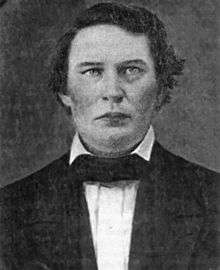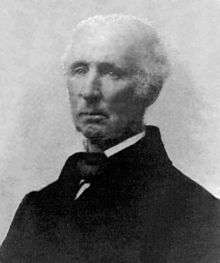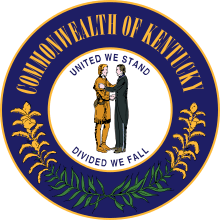List of Governors of Kentucky
The Governor of Kentucky is the head of the executive branch of Kentucky's state government,[1] and serves as commander-in-chief of the state's military forces.[2] The governor has a duty to enforce state laws;[3] the power to either approve or veto bills passed by the Kentucky General Assembly;[4] the power to convene the legislature;[5] and the power to grant pardons, except in cases of treason and impeachment.[6] He or she is also empowered to reorganize the state government or reduce it in size. Historically, the office has been regarded as one of the most powerful executive positions in the United States.[7]
Fifty-eight individuals have held the office of Governor. Prior to a 1992 amendment to the state's constitution, the Governor was prohibited from succeeding himself in office, though four men (Isaac Shelby, John L. Helm, James B. McCreary and Happy Chandler) served multiple non-consecutive terms. Paul E. Patton, the first Kentucky Governor eligible for a second consecutive term under the amendment, won his reelection bid in 1999. James Garrard succeeded himself in 1800, before the constitutional provision existed.
William Goebel, who was elected to the office in the disputed election of 1899, remains the only Governor of any U.S. state to die from assassination while in office.[8] Martha Layne Collins, who held the office from 1983 to 1987, was the first woman to serve as governor and was only the third woman to serve as governor of any U.S. state who was not the wife or widow of a previous governor.[7] The 62nd and current Kentucky Governor is Republican Matt Bevin, who took office on December 8, 2015.
Governors
Kentucky was initially Kentucky County in Virginia. It achieved statehood and was admitted to the Union on June 1, 1792; see the list of governors of Virginia for the period before statehood. There have been 57 governors, serving 61 distinct terms.
An unelected group proclaimed Kentucky's secession from the Union on November 20, 1861, and it was annexed by the Confederate States of America on December 10, 1861. The Confederate government elected two governors (listed separately), but it never held much control over the state, and the main line of governors was preserved.
The original 1792 Kentucky Constitution had the governor chosen by an electoral college for a term of four years.[9] The second constitution in 1799 changed this to a popular vote, and prevented governors from succeeding themselves within seven years of their terms.[10] The third constitution in 1850 reduced the succession limitation to four years.[11] A 1992 amendment to the constitution allowed governors to have a second term before being prevented from succeeding themselves for four years.[12]
| # | Governor | Term in office | Party | Election | Lt. Governor[lower-alpha 1][lower-alpha 2] | |||
|---|---|---|---|---|---|---|---|---|
| 1 | 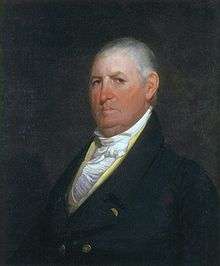 |
Isaac Shelby | June 4, 1792 – June 7, 1796 |
Democratic-Republican | 1792 | Office did not exist | ||
| 2 | 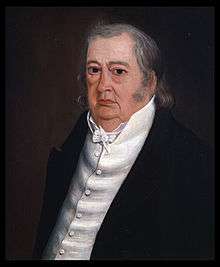 |
James Garrard | June 7, 1796 – September 5, 1804 |
Democratic-Republican | 1796 | |||
| 1800 | Alexander Scott Bullitt | |||||||
| 3 | 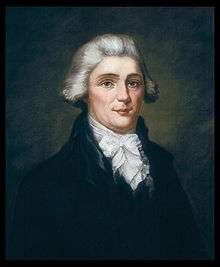 |
Christopher Greenup | September 5, 1804 – September 1, 1808 |
Democratic-Republican | 1804 | John Caldwell (died November 19, 1804) | ||
| Vacant | ||||||||
| Thomas Posey (acting, elected Speaker in 1805) | ||||||||
| 4 | 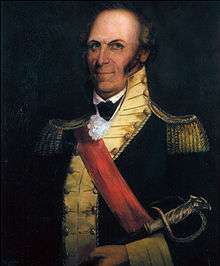 |
Charles Scott | September 1, 1808 – August 24, 1812 |
Democratic-Republican | 1808 | Gabriel Slaughter | ||
| 5 |  |
Isaac Shelby | August 24, 1812 – September 5, 1816 |
Democratic-Republican | 1812 | Richard Hickman | ||
| 6 | 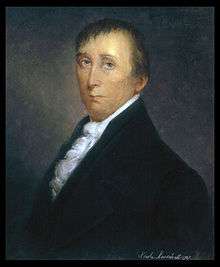 |
George Madison | September 5, 1816 – October 14, 1816 |
Democratic-Republican | 1816 [lower-alpha 3] |
Gabriel Slaughter | ||
| 7 | 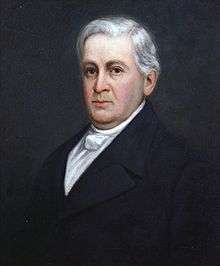 |
Gabriel Slaughter | October 14, 1816 – August 29, 1820 |
Democratic-Republican | Vacant | |||
| 8 | 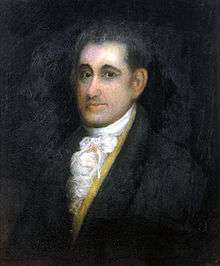 |
John Adair | August 29, 1820 – August 24, 1824 |
Democratic-Republican | 1820 | William T. Barry | ||
| 9 | 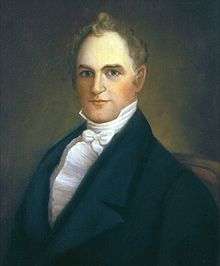 |
Joseph Desha | August 24, 1824 – August 26, 1828 |
Democratic-Republican | 1824 | Robert B. McAfee | ||
| 10 | 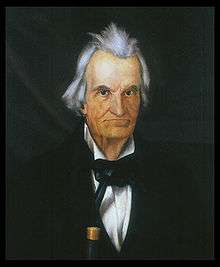 |
Thomas Metcalfe | August 26, 1828 – September 4, 1832 |
National Republican | 1828 | John Breathitt[lower-alpha 4] | ||
| 11 | 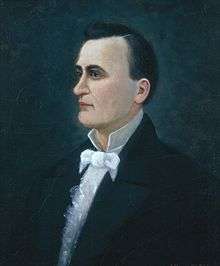 |
John Breathitt | September 4, 1832 – February 21, 1834 |
Democratic | 1832 [lower-alpha 5][lower-alpha 6] |
James T. Morehead[lower-alpha 7] | ||
| 12 | 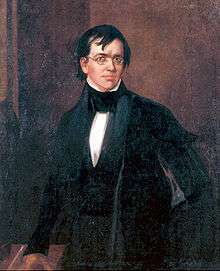 |
James T. Morehead | February 21, 1834 – August 30, 1836 |
National Republican | Vacant | |||
| Whig | ||||||||
| 13 | 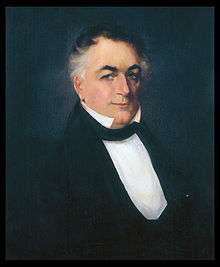 |
James Clark | August 30, 1836 – August 27, 1839 |
Whig | 1836 [lower-alpha 8] |
Charles A. Wickliffe | ||
| 14 | 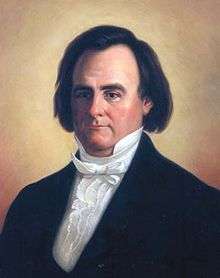 |
Charles A. Wickliffe | August 27, 1839 – September 2, 1840 |
Whig | Vacant | |||
| 15 | 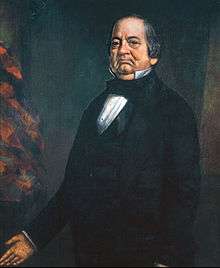 |
Robert P. Letcher | September 2, 1840 – September 4, 1844 |
Whig | 1840 | Manlius V. Thomson | ||
| 16 | 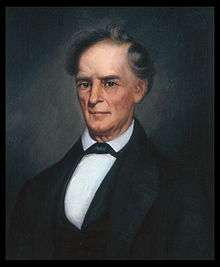 |
William Owsley | September 4, 1844 – September 6, 1848 |
Whig | 1844 | Archibald Dixon | ||
| 17 | 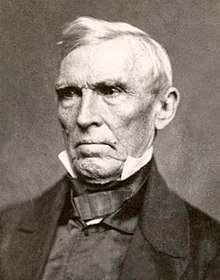 |
John J. Crittenden | September 6, 1848 – July 31, 1850 |
Whig | 1848 [lower-alpha 9][lower-alpha 10] |
John L. Helm | ||
| 18 | 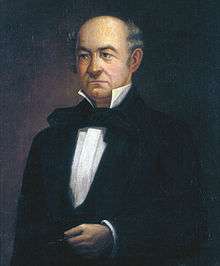 |
John L. Helm | July 31, 1850 – September 2, 1851 |
Whig | Vacant | |||
| 19 | 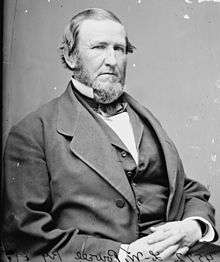 |
Lazarus W. Powell | September 2, 1851 – September 4, 1855 |
Democratic | 1851 | John B. Thompson[lower-alpha 11] | ||
| 20 |  |
Charles S. Morehead | September 4, 1855 – August 30, 1859 |
Know Nothing | 1855 | James G. Hardy | ||
| 21 | 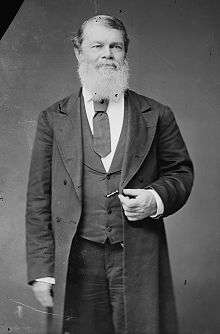 |
Beriah Magoffin | August 30, 1859 – August 18, 1862 |
Democratic | 1859 [lower-alpha 12] |
Linn Boyd (died December 17, 1859) | ||
| Vacant | ||||||||
| 22 | 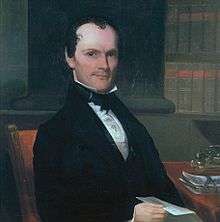 |
James F. Robinson | August 18, 1862 – September 1, 1863 |
Democratic | ||||
| 23 | .jpg) |
Thomas E. Bramlette | September 1, 1863 – September 3, 1867 |
Democratic | 1863 | Richard T. Jacob | ||
| 24 |  |
John L. Helm | September 3, 1867 – September 8, 1867 |
Democratic | 1867 [lower-alpha 13] |
John W. Stevenson | ||
| 25 | 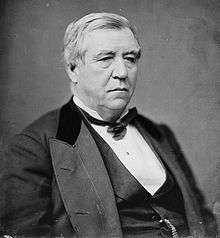 |
John W. Stevenson | September 8, 1867 – February 3, 1871 |
Democratic | Vacant | |||
| 1868 [lower-alpha 14][lower-alpha 15] | ||||||||
| 26 | 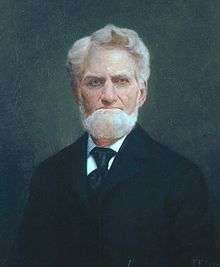 |
Preston H. Leslie | February 3, 1871 – August 31, 1875 |
Democratic | ||||
| 1871 | John G. Carlisle | |||||||
| 27 |  |
James B. McCreary | August 31, 1875 – September 2, 1879 |
Democratic | 1875 | John C. Underwood | ||
| 28 | 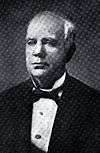 |
Luke P. Blackburn | September 2, 1879 – September 5, 1883 |
Democratic | 1879 | James E. Cantrill | ||
| 29 | 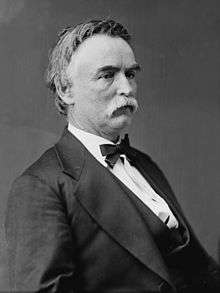 |
J. Proctor Knott | September 5, 1883 – August 30, 1887 |
Democratic | 1883 | James R. Hindman | ||
| 30 | 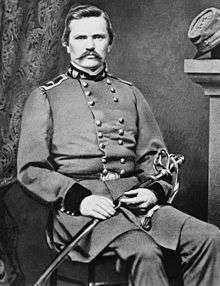 |
Simon Bolivar Buckner | August 30, 1887 – September 2, 1891 |
Democratic | 1887 | James W. Bryan | ||
| 31 | 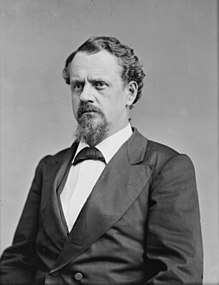 |
John Young Brown | September 2, 1891 – December 10, 1895 |
Democratic | 1891 | Mitchell C. Alford | ||
| 32 | 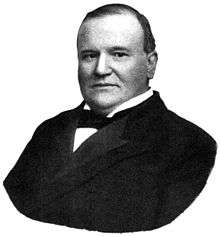 |
William O. Bradley | December 10, 1895 – December 12, 1899 |
Republican | 1895 | William J. Worthington | ||
| 33 | 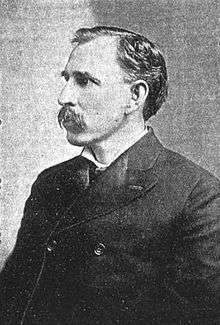 |
William S. Taylor | December 12, 1899 – January 31, 1900 |
Republican | 1899 [lower-alpha 16] |
John Marshall | ||
| 34 | 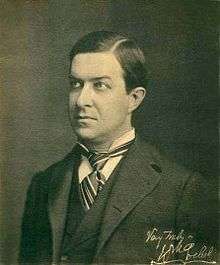 |
William Goebel | January 31, 1900 – February 3, 1900 |
Democratic | J. C. W. Beckham | |||
| 35 | 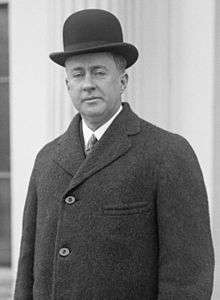 |
J. C. W. Beckham | February 3, 1900 – December 10, 1907 |
Democratic | Vacant | |||
| 1900 [lower-alpha 17] | ||||||||
| 1903 | William P. Thorne | |||||||
| 36 | 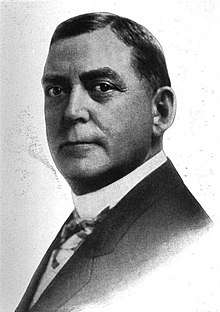 |
Augustus E. Willson | December 10, 1907 – December 12, 1911 |
Republican | 1907 | William Hopkinson Cox | ||
| 37 |  |
James B. McCreary | December 12, 1911 – December 7, 1915 |
Democratic | 1911 | Edward J. McDermott | ||
| 38 | 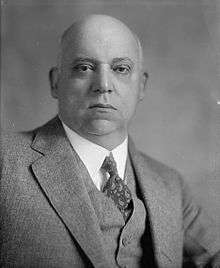 |
Augustus O. Stanley | December 7, 1915 – May 19, 1919 |
Democratic | 1915 [lower-alpha 18] |
James D. Black | ||
| 39 |  |
James D. Black | May 19, 1919 – December 9, 1919 |
Democratic | Vacant | |||
| 40 |  |
Edwin P. Morrow | December 9, 1919 – December 11, 1923 |
Republican | 1919 | S. Thruston Ballard | ||
| 41 |  |
William J. Fields | December 11, 1923 – December 13, 1927 |
Democratic | 1923 | Henry Denhardt | ||
| 42 |  |
Flem D. Sampson | December 13, 1927 – December 8, 1931 |
Republican | 1927 | James Breathitt, Jr.[lower-alpha 4] | ||
| 43 | 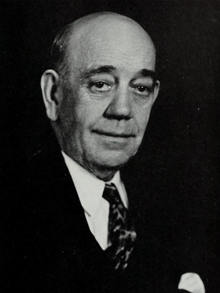 |
Ruby Laffoon | December 8, 1931 – December 10, 1935 |
Democratic | 1931 | Happy Chandler | ||
| 44 | 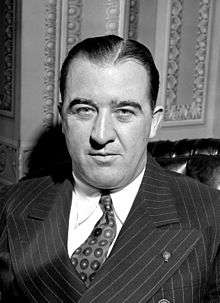 |
Happy Chandler | December 10, 1935 – October 9, 1939 |
Democratic | 1935 [lower-alpha 19] |
Keen Johnson | ||
| 45 | 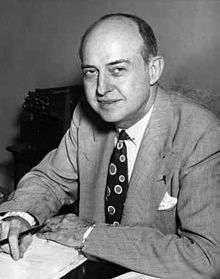 |
Keen Johnson | October 9, 1939 – December 7, 1943 |
Democratic | Vacant | |||
| 1939 | Rodes K. Myers | |||||||
| 46 |  |
Simeon Willis | December 7, 1943 – December 9, 1947 |
Republican | 1943 | Kenneth H. Tuggle | ||
| 47 | 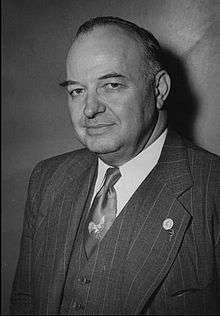 |
Earle Clements | December 9, 1947 – November 27, 1950 |
Democratic | 1947 [lower-alpha 20] |
Lawrence W. Wetherby | ||
| 48 |  |
Lawrence W. Wetherby | November 27, 1950 – December 13, 1955 |
Democratic | Vacant | |||
| 1951 | Emerson Beauchamp | |||||||
| 49 |  |
Happy Chandler | December 13, 1955 – December 8, 1959 |
Democratic | 1955 | Harry Lee Waterfield | ||
| 50 | 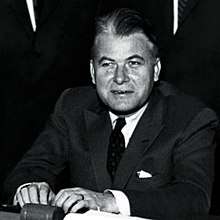 |
Bert Combs | December 8, 1959 – December 10, 1963 |
Democratic | 1959 | Wilson Wyatt | ||
| 51 | 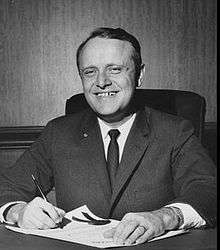 |
Ned Breathitt | December 10, 1963 – December 12, 1967 |
Democratic | 1963 | Harry Lee Waterfield | ||
| 52 | 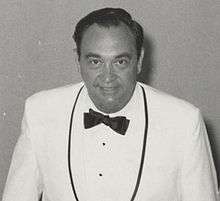 |
Louie Nunn | December 12, 1967 – December 7, 1971 |
Republican | 1967 | Wendell Ford[lower-alpha 4] | ||
| 53 | 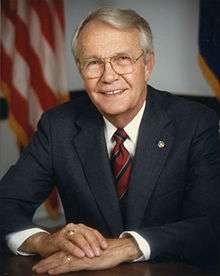 |
Wendell Ford | December 7, 1971 – December 28, 1974 |
Democratic | 1971 [lower-alpha 21] |
Julian Carroll | ||
| 54 | 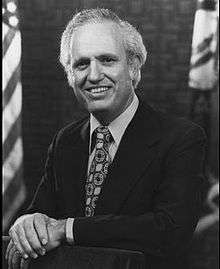 |
Julian Carroll | December 28, 1974 – December 11, 1979 |
Democratic | Vacant | |||
| 1975 | Thelma Stovall | |||||||
| 55 | 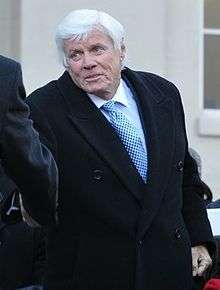 |
John Y. Brown Jr. | December 11, 1979 – December 13, 1983 |
Democratic | 1979 | Martha Layne Collins | ||
| 56 | .jpg) |
Martha Layne Collins | December 13, 1983 – December 8, 1987 |
Democratic | 1983 | Steve Beshear | ||
| 57 |  |
Wallace Wilkinson | December 8, 1987 – December 10, 1991 |
Democratic | 1987 | Brereton Jones | ||
| 58 |  |
Brereton Jones | December 10, 1991 – December 12, 1995 |
Democratic | 1991 | Paul E. Patton | ||
| 59 | .jpg) |
Paul E. Patton | December 12, 1995 – December 9, 2003 |
Democratic | 1995 | Steve Henry | ||
| 1999 | ||||||||
| 60 |  |
Ernie Fletcher | December 9, 2003 – December 11, 2007 |
Republican | 2003 | Steve Pence | ||
| 61 | 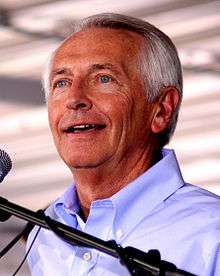 |
Steve Beshear | December 11, 2007 – December 8, 2015 |
Democratic | 2007 | Daniel Mongiardo | ||
| 2011 | Jerry Abramson (resigned November 13, 2014) | |||||||
| Crit Luallen (appointed November 13, 2014) | ||||||||
| 62 |  |
Matt Bevin | December 8, 2015 – Incumbent |
Republican | 2015 [lower-alpha 22] |
Jenean Hampton | ||
Confederate governors
During the Civil War, a group of secessionists met at the Russellville to form a Confederate government for the Commonwealth of Kentucky. While this government never successfully displaced the government in Frankfort, two men were elected governor of the Confederate government: George W. Johnson, who served from November 20, 1861 to his death on April 8, 1862 at the Battle of Shiloh, and, on Johnson's death, Richard Hawes, who served until the Confederate surrender on April 9, 1865. The Confederate government disbanded shortly after the end of the war in 1865.[14]
Living former governors
There are seven living former governors of Kentucky, the oldest being Julian M. Carroll (served 1974–1979, born 1931). The most recent governor to die was Wendell H. Ford (served 1971–1974, born 1924), on January 22, 2015. The most recently serving governor to die was Wallace G. Wilkinson (served 1987–1991, born 1941), who died on July 5, 2002.
| Governor | Gubernatorial term | Date of birth (and age) |
|---|---|---|
| Julian M. Carroll | 1974–1979 | April 16, 1931 |
| John Y. Brown, Jr. | 1979–1983 | December 28, 1933 |
| Martha Layne Collins | 1983–1987 | December 7, 1936 |
| Brereton C. Jones | 1991–1995 | June 27, 1939 |
| Paul E. Patton | 1995–2003 | May 26, 1937 |
| Ernie Fletcher | 2003–2007 | November 12, 1952 |
| Steve Beshear | 2007–2015 | September 21, 1944 |
See also
Notes
- ↑ The office of Lieutenant Governor was created in the 1799 constitution.[13]
- ↑ Lieutenant governors represented the same party as their governor unless noted.
- ↑ Madison died in office; as lieutenant governor, Slaughter succeeded him.
- 1 2 3 Represented the Democratic Party.
- ↑ Breathitt died in office; as lieutenant governor, Morehead succeeded him.
- ↑ The National Republican Party changed its name to the Whig Party in 1834.
- ↑ Represented the National Republican Party.
- ↑ Clark died in office; as lieutenant governor, Wickliffe succeeded him.
- ↑ Crittenden resigned to be Attorney General of the United States; as lieutenant governor, Helm succeeded him.
- ↑ The 1850 Constitution shifted the election schedule forward, shortening this term by a year.
- ↑ Represented the Whig Party.
- ↑ Magoffin resigned due to his disagreement with the state legislature over neutrality in the American Civil War; with lieutenant governor being vacant, he was succeeded by President of the Senate Robinson.
- ↑ Helm died in office; as lieutenant governor, Stevenson succeeded him.
- ↑ Stevenson won a special election held in 1868.
- ↑ Stevenson resigned to take an elected seat in the United States Senate; with lieutenant governor being vacant, he was succeeded by President of the Senate Leslie.
- ↑ Taylor won the 1899 election and was sworn into office. However, the legislature challenged the validity of his win, claiming ballot fraud. His challenger, Goebel, was shot on January 30, 1900, but was named governor by the legislature and sworn in the next day; he died three days later. Since Lieutenant Governor Marshall's win had also been invalidated, Beckham, having been named lieutenant governor, succeeded Goebel.
- ↑ Beckham won a special election held in 1900.
- ↑ Stanley resigned to take an elected seat in the United States Senate; as lieutenant governor, Black succeeded him.
- ↑ Chandler resigned so that his successor would appoint him to the United States Senate; as lieutenant governor, Johnson succeeded him and did so.
- ↑ Clements resigned to take an elected seat in the United States Senate; as lieutenant governor, Wetherby succeeded him.
- ↑ Ford resigned to take an elected seat in the United States Senate; as lieutenant governor, Carroll succeeded him.
- ↑ Governor Bevin's term expires on December 10, 2019; he is not yet term limited.
References
- General
- "Kentucky's Governors". Kentucky Department for Libraries and Archives. Archived from the original on July 8, 2010. Retrieved July 13, 2010.
- "Governors of Kentucky". National Governors Association. Archived from the original on 2011-03-16. Retrieved January 18, 2008.
- "Texts of the Constitutions of Kentucky". Kentucky Court of Justice. Archived from the original on 2010-03-18. Retrieved January 18, 2008.
- Constitution
- "Kentucky Constitution". Kentucky Legislature. Archived from the original on 2010-06-17. Retrieved July 13, 2010.
- "1792 Kentucky Constitution" (PDF). Commonwealth of Kentucky. Archived from the original (PDF) on 2010-03-13. Retrieved July 13, 2010.
- "1799 Kentucky Constitution" (PDF). Commonwealth of Kentucky. Archived from the original (PDF) on 2010-03-13. Retrieved July 13, 2010.
- "1850 Kentucky Constitution" (PDF). Commonwealth of Kentucky. Archived from the original (PDF) on 2010-03-13. Retrieved July 13, 2010.
- Specific
- ↑ KY Const. art. 69.
- ↑ KY Const. art. 75.
- ↑ KY Const. art. 81
- ↑ KY Const. art. 88.
- ↑ KY Const. art. 80.
- ↑ KY Const. art. 77.
- 1 2 Kleber, John E., ed. (1992). "Governor, Office of". The Kentucky Encyclopedia. Lexington, Kentucky: The University Press of Kentucky. ISBN 0-8131-1772-0.
- ↑ Kleber, John E., ed. (1992). "Goebel Assassination". The Kentucky Encyclopedia. Lexington, Kentucky: The University Press of Kentucky. ISBN 0-8131-1772-0.
- ↑ 1799 Const. art. II, § 2–3
- ↑ 1799 Const. art. III, § 3–4
- ↑ 1850 Const. art. III, § 3
- ↑ KY Const. art. 71
- ↑ 1799 Const. art. II, § 15
- ↑ Kleber, John E., ed. (1992). "Confederate Government". The Kentucky Encyclopedia. Lexington, Kentucky: The University Press of Kentucky. ISBN 0-8131-1772-0.
External links
| Wikimedia Commons has media related to Governors of Kentucky. |
